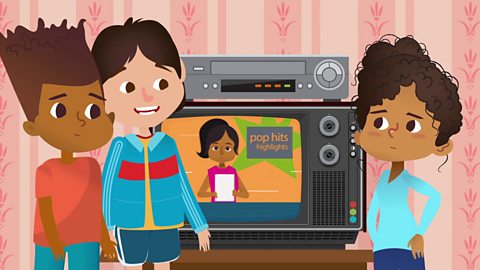Watch: Children in the 1940s
Find out what life was like for children in the 1940s.
Lucy: Please, grandpa. Just one more piece.
Grandpa: That’s quite enough. You’re lucky you have chocolate at all.
Lucy: What? Everyone has chocolate.
Grandpa: Not when we were young, we didn’t. Come on, I’ll show you what life was like when I was your age.
Young Grandpa: When I was young, there was a big war happening all over the world. We were only allowed to eat a certain amount of food, to make sure every family had enough. This was called ‘rationing’.
Nathan: What are you wearing, grandpa?
Young Grandpa: This was the kit that we had to wear when we left.
Lucy: Where are we going?
Young Grandpa: The city was very dangerous during the war, because of all the bombing. To keep us safe, many children were sent out to the countryside to live with other families.
Nathan: Not with your parents?
Young Grandpa: No. They still had to work.
Lucy: So who looked after you?
Young Grandpa: I lived with a lovely family in Yorkshire. They had three kids already, so one more didn’t make that much difference.
Nathan: Did you miss your parents?
Young Grandpa: Yes, of course, but it was such an adventure. We had woods nearby where we built camps and played hide and seek.
Nathan: Did you have any treats in your camps?
Young Grandpa: No. but the family grew their own vegetables to provide extra food, which we helped to pick. I used to write a letter to my mum and dad once a week, and they sent letters to me to tell me what was going on at home.
Lucy: There’s no TV in here!
Young Grandpa: No. We used to listen to the radio together, which told us all about what was going on in the war.
Nathan: So when did you come back home?
Grandpa: When the bombing had stopped and it was safe to go home.
Lucy: I bet you really love chocolate now!
Grandpa: I certainly do! Shall we have some more?
Nathan: Yes, please!
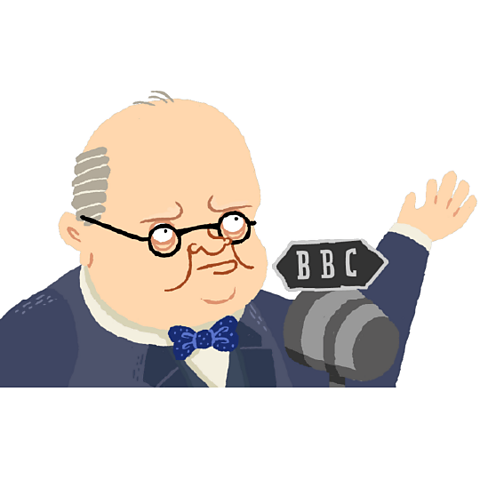
What happened in the 1940s?
In 1939 Britain declared war on Nazi Germany. This was called World War Two and it lasted until 1945.
This meant children from the cities were evacuated away from their parents.Winston Churchill became Prime Minister in May 1940 and promised never to surrender.
The government introduced rationing, which limited the amount of food everyone could buy.
Sweet rationing did not end until 1953 – eight years after the end of the war!

What was the Blitz?
In September 1940, Germany started bombing towns and cities in Britain.
London and Belfast were badly bombed as well as other cities such as Coventry, Swansea, Peterhead and Exeter.
Many children helped in the war by acting as messengers or looking out for fires.
Younger children helped collect materials which could be recycled, such as clothes and waste paper. They also collected money and knitted socks for the troops.
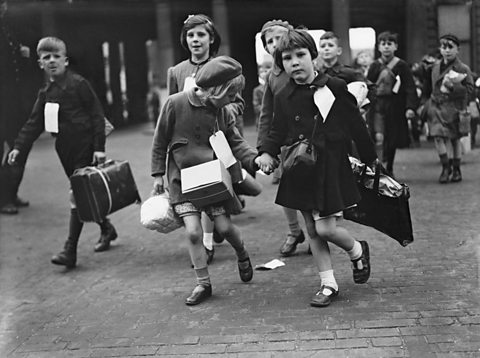
Evacuation
- During World War Two many children were evacuated from towns and cities to the countryside where it was safer.
- Evacuation was an adventure for some who had never seen the countryside. Others were homesick and unhappy.
- Children in the 1940s experienced food shortages, rationing, lessons in putting on gas masks, and practised evacuation drills.

What was school like?
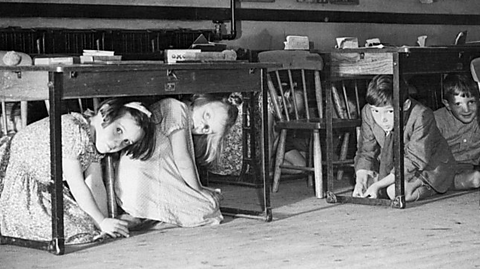
- Sometimes classes were in the open air as many school buildings had been bombed.
- Schools in rural areas were often overcrowded because evacuated children joined the classes.
- Younger teachers joined the Armed Forces and retired teachers returned to the classroom.
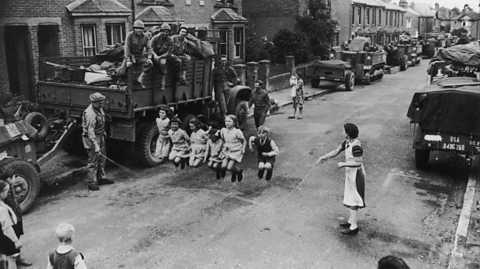
Did you know?
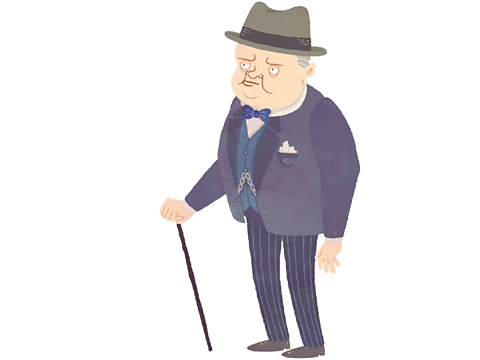
- Prime Minister Winston Churchill refused to allow fish and chips to be rationed.
- Churchill felt it helped to keep people's spirits up.

Activities
Activity 1: Children in the 1940s quiz
Activity 2: 1940s colouring in sheet
Download and print this colouring sheet of Lucy, Nathan and Young Gramps in the countryside in the 1940s. Can you colour it in and label it with some of the things that evacuees would have seen?
activity
Download the 1940s colouring sheet here.

Play Bitesize Primary games. game
Fun and educational primary games in science, maths, English, history, geography, art and design, computing and modern languages.

More on Childhood through time
Find out more by working through a topic
- count4 of 10
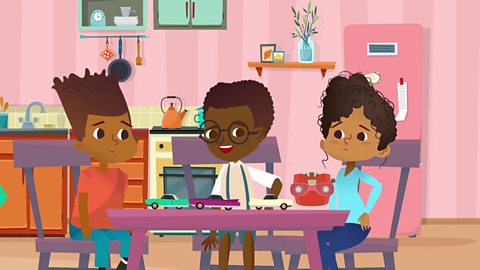
- count5 of 10
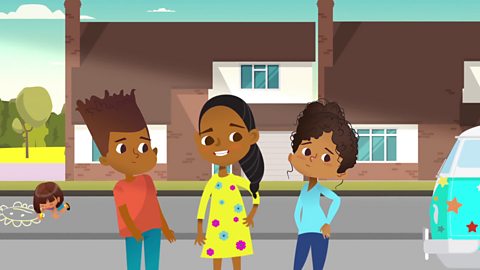
- count6 of 10
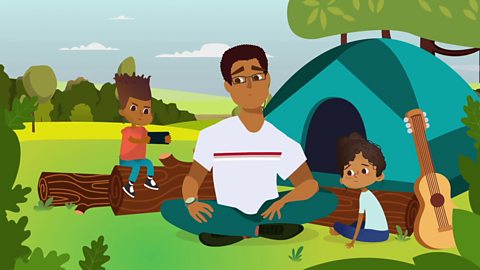
- count7 of 10
